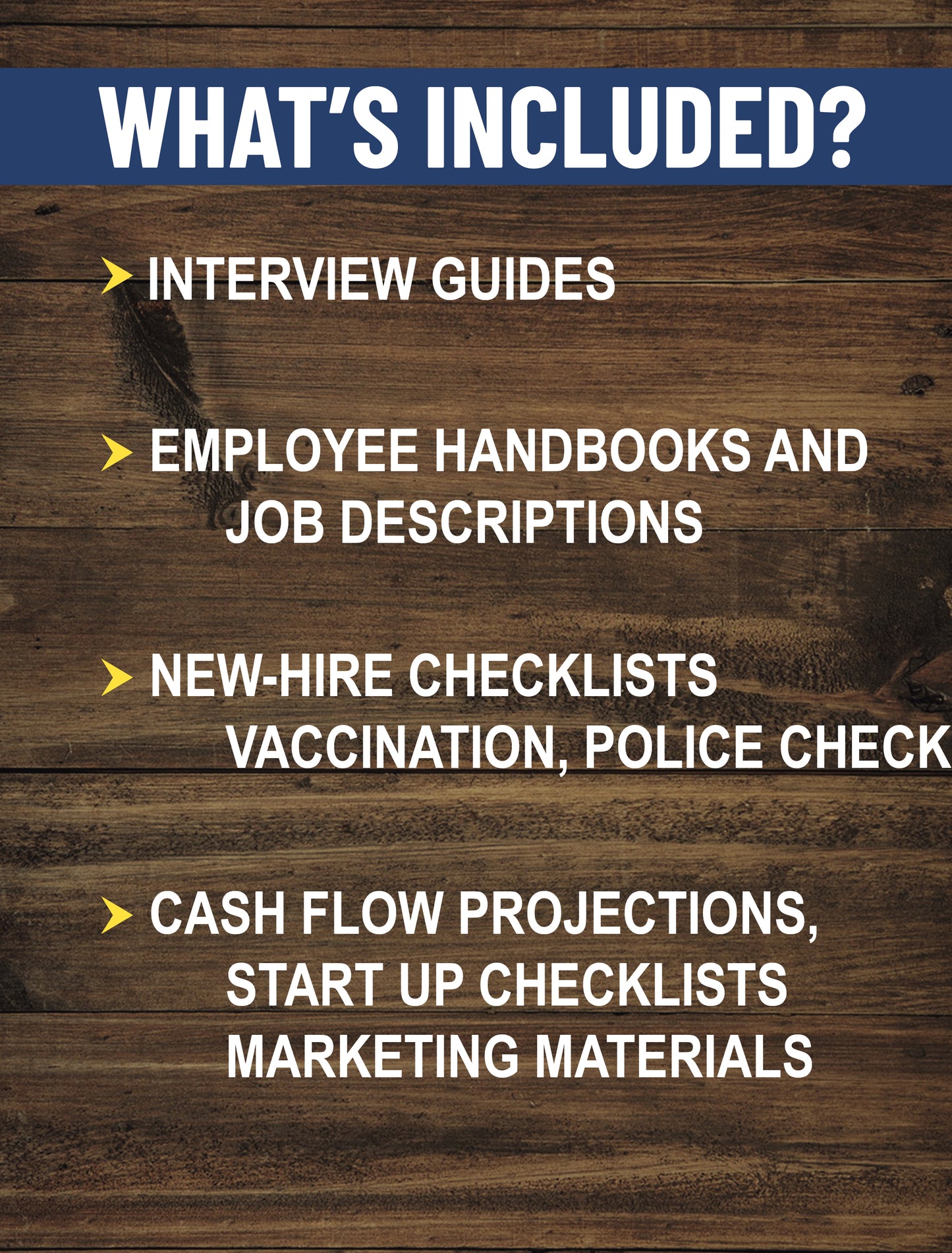At HomeCare101 we’re all about making sure that Home Care business owners have the resources needed to succeed! Making sure that you stay informed and compliant with Ontario’s regulations, especially with the latest changes to the Employment Standards Act (ESA), is big part of that.
If you’re running a home care agency in Ontario, it’s essential to understand whether or not you need to apply for a license—and we’re here to help break that down for you.
Just to be 100% clear, these are my own interpretations and you will need to determine how these requirements apply to your own business. The THA Licensing representative stated explicitly:
"Whether a legal entity is considered a temporary help agency or recruiter under the ESA is to be determined on a case-by-case basis, after considering the facts and circumstances as an employment standards officer finds them during an inspection or a claim investigation. Outside of this enforcement activity, the ministry does not determine nor provide documentation setting out whether the licensing rules in the ESA apply to specific legal entities."
So, Who Needs a License (in my opinion)?
The recent licensing requirements impact Temporary Help Agencies (THAs) and recruiters. But the question is, does this apply to your home care business?
The answer depends on how you operate and what kind of relationship you have with your clients and caregivers. Let’s walk through a few common scenarios.
Scenario 1: You Provide Family-Funded Managed Care (No License Needed- I think!)
If your home care agency provides professional care services and develops a structured care plan that you oversee, chances are you don’t need a license. In this case, your caregivers are following a plan created by a nurse or other professional, and your agency is in control of the quality and delivery of the service, and you are working directly with the client (there is no third-party contract).
Example:
Take Mrs. Smith, for instance. Your agency sends a nurse to Mrs. Smith’s home to assess her needs and develop a care plan. You assign Jane, a PSW, to help Mrs. Smith on Mondays, Wednesdays, and Fridays, while Mary works on Tuesdays and Thursdays. Every week, your nurse checks in to review the care documentation and ensure the plan is followed.
Here, your agency is responsible for overseeing the service and making sure everything is on track.
Result: No license required.
Scenario 2: You Assign Caregivers (License Required!)
If your agency is simply assigning caregivers to clients, where the caregiver works directly under the client's supervision and there’s no professionally developed care plan from your end, your agency is likely operating as a Temporary Help Agency (THA). In this case, you would need a license. This is the scenario when you are providing care to client through a contract with the LHIN.
Example:
Let’s say Mrs. Smith needs someone to help her from 9 a.m. to 5 p.m. while her daughter is at work. She wants to meet the caregiver before making a decision, and after meeting Mary, she decides Mary is the right fit. You assign Mary to work with Mrs. Smith every weekday, but your agency has minimal involvement beyond that.
Here, your role is mostly about matching Mary with Mrs. Smith, and they handle the day-to-day care on their own.
Result: License required as a Temporary Help Agency.
Scenario 3: A Bit of Both? (You Need a License!)
If your agency provides both managed care (like in Scenario 1) and caregiver assignments (like in Scenario 2), you might need a license for the THA portion of your business. Make sure to assess how much of your operations involve assigning caregivers without directly managing their care.
Scenario 4: Providing Home Care Services for LHIN Contracts
If your agency provides services under a Local Health Integration Network (LHIN) contract (also known as Ontario Health atHome), your employees are definitely considered assignment employees since the LHIN manages and oversees the care. This grants you exemptions from certain record-keeping and client obligations under Part XVIII.1 of the ESA. However, these exemptions do not cover licensing requirements.
In short: If you’re providing services under a LHIN contract, you need a THA license.
Not every home care agency is classified as a Temporary Help Agency (THA) under Ontario's Employment Standards Act (ESA). To help clarify, here’s a simplified breakdown of three common scenarios that may apply to your business:
-
Providing home care services directly to clients paying privately:
If your agency is delivering services directly to clients, creating care plans, and managing the quality of care (e.g., through private pay clients), a license is likely not required. -
Providing home care services under a government contract:
If your agency is contracted by the government to provide care services (such as through a LHIN or Ontario Health atHome), a license is required even though the government manages and oversees the care provided. -
Providing staffing services to facilities or families:
If your agency assigns caregivers to facilities or families who then direct the caregivers’ daily tasks, a license is required. In this case, you’re operating as a Temporary Help Agency because the client is managing the employee’s day-to-day responsibilities.
Understanding the Definition of a Temporary Help Agency (THA)
The Employment Standards Program’s Policy and Interpretation Manual defines a Temporary Help Agency (THA) as a business that employs workers for the purpose of assigning them to perform work on a temporary basis for its clients. In other words, a THA hires employees not to perform work for the agency itself but to temporarily work for its clients.
A question that often arises is whether companies like management consulting firms or security companies that provide workers to clients fall under this definition. The answer depends on the specific arrangement.
For example, if a security company hires employees to provide security services under its own direction and control, it may not be considered a THA. In contrast, if the company simply assigns employees to a client, and the client controls the daily tasks and responsibilities of those employees, it likely operates as a THA.
Client Relationship in THAs
In the context of a Temporary Help Agency, a "client" refers to any person or entity that enters into an agreement with the agency to have one or more employees assigned to them on a temporary basis. This could be an individual, sole proprietor, partnership, or corporation. The contract or agreement between the agency and the client may or may not be in writing, but the key factor is the temporary nature of the assignment and the control over the assigned employee’s day-to-day work.
Ultimately, determining whether a business operates as a THA depends on a number of factors, including who controls the employees’ work and whether the business is assigning employees for temporary assignments.
Information on these definitions is available on the ministry’s licensing webpage. With respect to temporary help agencies specifically, additional information on the definition is available through the Employment Standards Program’s Policy and Interpretation Manual.
How to Apply for a License
If your agency falls under the THA category, here’s what you need to know about applying for a license.
Step 1: Submit the Application
- You can submit your application online or in writing.
- You’ll need to provide:
- The legal name of your business and all your locations.
- For corporations, the names and addresses of your officers and directors.
- Contact details for people in your business who can answer questions about your application.
Step 2: Pay the Application Fee
- The fee for the application (and annual renewal) is $750. This fee is non-refundable, even if your application isn’t approved.
Step 3: Provide a Security Deposit
- You’ll need to provide a $25,000 security deposit (usually in the form of an irrevocable letter of credit or surety bond). This acts as a safeguard for things like unpaid wages to employees.
Step 4: Make Sure You’re Compliant
- You’ll also need to confirm that your business is in compliance with several laws, including the ESA, the Employment Protection for Foreign Nationals Act (EPFNA), and the Occupational Health and Safety Act.
- You’ll need to verify your tax compliance with the Ministry of Finance.
What Happens If You Don’t Comply?
Running a THA or acting as a recruiter without a license can result in hefty fines:
- First offense: $15,000
- Second offense: $25,000
- Third offense: $50,000
Penalties can add up quickly, so it’s important to make sure you’re in line with the rules if your business falls under the THA category.
Resources and Contact Information
For more information and resources, head to the Ontario Temporary Help Agency Licensing page.
You can also reach out to the licensing agency directly with questions or assistance on an application:
- by email at: THA-Recruiter.Licensing@ontario.ca
- by telephone at:
Final Thoughts
If your agency provides direct care services under your management and those services are family-funded, you likely don’t need a license. However, if you assign caregivers to clients without much oversight, make sure you apply for a THA license to stay compliant.
If you’re unsure about whether or not you need a license, it’s always best to double-check and consult with legal professionals or reach out to the Ministry of Labour for guidance.
About the Author









5 comments
What if care is provided under my management, but it is paid by private insurance instead of family members?
very informative. thank you so much for this
comprehensive information, Thanks
I am very happy to come across information that caters to the Canadian market. thanks a lot for sharing your knowledge and expertise
Thank you so much for clarifying this. I am so happy to have found your page.